Follow the money, and you’ll find out how and why corruption has become "Public Enemy Number One" for those who are promoting global development – as crony capitalists in the private sector connive with corrupt officials in the public sector to short-circuit sound business practices, reward self-interested insiders, subvert the broad public interest, and undermine the ideals of good governance.
This week’s gathering of the third-ever conference of the International Corruption Hunters Alliance (ICHA) – a global network of prosecutors, lawyers, detectives, forensic accountants and policymakers who track down illegal and unethical financial practices – will underscore the continuing drain on development imposed by public-sector graft, private-sector lawbreaking, and the worldwide flow of illicit funds from sinister financial transactions.
Monday morning’s opening plenary session at the World Bank Group’s headquarters in Washington – headlined by Prince William, the Duke of Cambridge and heir to the British throne, along with Bank Group President Jim Yong Kim – began a week that should help focus worldwide attention on the way that systematic corruption enriches lawbreakers, undermines respect for the rule of law, thwarts good-governance efforts and drains scarce resources from effective development.
The three-day conference should also raise public awareness of the vigorous international action that has been mobilized in recent years, as corruption-related concerns have risen to a leading position on the global diplomatic agenda.
Inspired by then-World Bank President James D. Wolfensohn’s landmark “cancer of corruption” speech at the 1996 Annual Meetings, global action has been steadily gaining momentum – through such channels as the G20 leaders’ working group to tighten policies and procedures; the Financial Action Task Force’s standard-setting vigilance; the OECD’s Anti-Bribery Convention and its continuing monitoring of corruption’s toll; and civil-society organizations’ diligent watchdog efforts to ensure that development dollars will go, not toward graft, but toward the places where aid is desperately needed.
This week’s events at the Bank Group – focusing on the theme of “Ending Impunity,” and pivoting around International Anti-Corruption Day, which the United Nations has designated as this Tuesday – are timed to coincide with the launch of the OECD’s latest Foreign Bribery Report.
The World Bank Group continues to champion the anticorruption ideal and good-governance standards: by enforcing a “zero tolerance” policy for corruption, closely tracking furtive patterns of suspicious financial flows, and working with law-enforcement officials worldwide to track down assets that have been looted and hidden by kleptocratic regimes. This week’s conference is organized by the Integrity Vice Presidency – which coordinates the Bank Group-wide effort to expunge all corrupt or unethical practices – with the support of such Bank Group units as the Governance Global Practice and the Stolen Assets Recovery Initiative.
Analyzing the culture of corruption that eats away at the effectiveness and the reputational credibility of international development efforts, the Governance Global Practice recently hosted a seminar by one of the world’s foremost authorities on corruption, Prof. Adam Graycar, who teaches public policy and serves as the director of the Research School of Social Sciences and the Transnational Research Institute on Corruption at the Australian National University. (He has also served as the dean of the School of Criminal Justice at Rutgers University and as the director of the Australian Institute of Criminology in Canberra.) The video of his remarks and his PowerPoint presentation – on preventing, detecting and policing both individual corruption and institutional vulnerability – are online on the Bank Group’s website.
Along with Prof. Graycar’s seminar, this third conference of the ICHA – and the side events and additional discussions that will occur around its margins – underscores the continuing urgency of coordinated international action to eliminate corruption and ensure financial integrity.
Moreover, this week's conference whets the appetite of the anticorruption community for an important new book: “Thieves of State: Why Corruption Threatens Global Security” by Sarah Chayes, a senior associate at the Carnegie Endowment for International Peace (in its Democracy and Rule of Law Program) and a former special adviser to the chairman of the U.S. Joint Chiefs of Staff. Chayes offers shrewd insights into the broader dangers of corruption – seeing it as a threat, not just to economic and social development, but to the very foundations of peace and security.
Chayes persuasively connects the dots between chronic corruption, simmering social resentment, regime instability and eventual upheaval: “A remarkable correlation exists between severe and systemic corruption and ideological extremism. Of the bottom 11 countries on Transparency International's Corruption Perceptions Index – a well-known annual ranking of perceived corruption in nations around the world – eight harbor a violent extremist movement. Not one of the 11 countries identified as least corrupt does. . . . Almost every popular revolt aimed at toppling a government in recent years, from the Arab uprisings to Ukraine's revolution, began as a protest against acute corruption.
“Corruption, in other words, has security implications,” asserts Chayes. “Closer examination of the correlation between corruption and extremism, and of how severe corruption interacts with other risk factors to fuel international security challenges, could inform better policy approaches.”
Plundering public resources – either to enrich individual grafters or special-interest groups – pilfers money from the poor, diverts resources from pro-growth priorities, and weakens public faith in the rule of law. Over time, grand-scale corruption can spark insurrection, triggering the kind of abrupt regime collapse that endangers international stability. As global corruption-hunters “follow the money” and track down assets that rightly belong to the public and the poor, they are on society’s front lines in watchdogging the integrity of the international development process. This week’s ICHA conference at the World Bank Group is playing an energetic role in breaking the chain of corruption, and in upholding public confidence in the honesty, accountability and transparency of global development.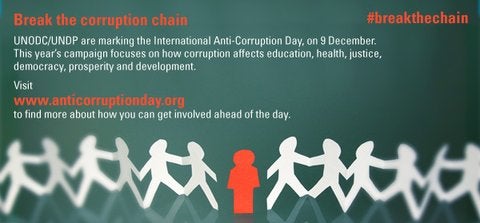

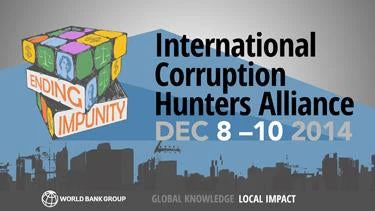
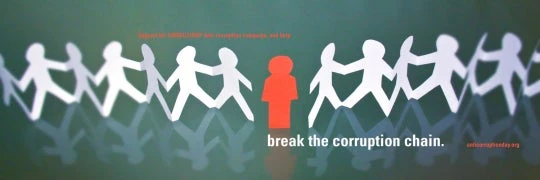
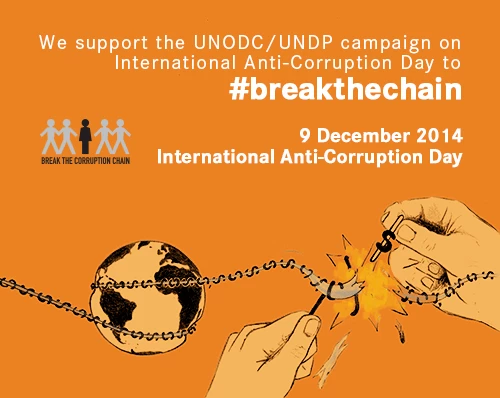
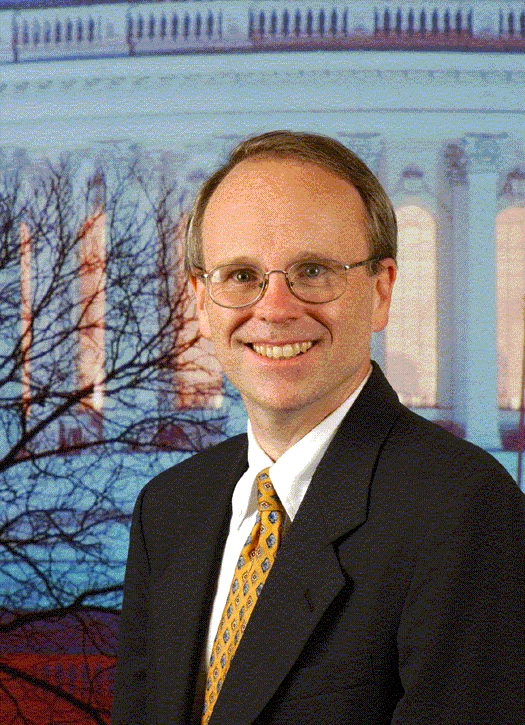
Join the Conversation